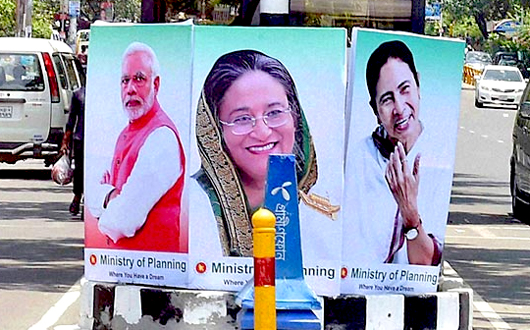Dhaka, Jun 6: Prime Minister Narendra Modi on Saturday morning left for a two-day "historic" visit to Bangladesh where he will hold talks with his Bangladeshi counterpart Sheikh Hasina and ink several agreements, especially in the field of connectivity and trade.
"Leaving for Bangladesh. This visit is going to strengthen the bond between our nations, benefitting people of our countries and our region," the Prime Minister tweeted.
Bangladesh is all set to give a grand welcome to Modi when he lands at the Shahjalal International Airport in Dhaka for the visit.
Signs of a grand welcome can be seen even on the roads of the city as well. Apart from the cut-outs of the PM, West Bengal chief minister Mamata Banerjee cut-outs also dot the streets along with that of Bangladesh PM Sheikh Hasina and Modi. Hasina is expected to receive Modi at the airport.
Opposition Bangladesh Nationalist party chairperson Khaleda Zia has scheduled a meeting with Modi on Sunday. She had earlier refused to meet President Pranab Mukherjee in March 2013.
Jamaat Islami Bangladesh, which often makes anti-India speeches, too seems happy with Modi’s visit.
Gowher Rizvi, PM Hasina’s international affairs adviser, said the visit should be seen as a turning point in regional cooperation as well.
In Delhi, foreign secretary S Jaishankankar said Modi’s visit would be historic and the wrapping up the land boundary agreement will be the central point of discussion. Both countries are also looking to step up security, defence and economic ties.








Comments
Add new comment